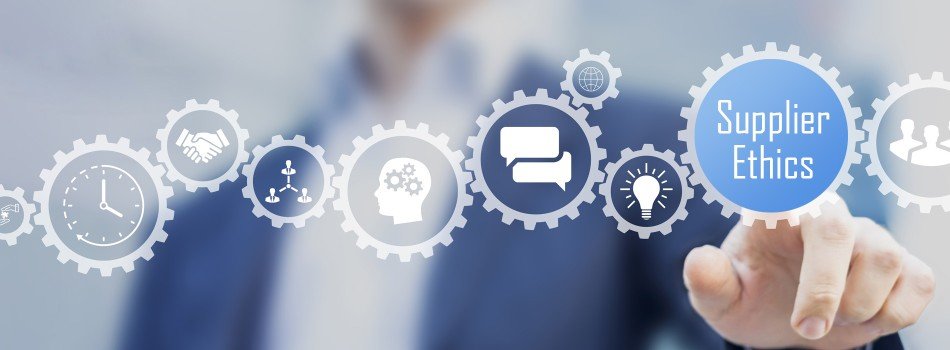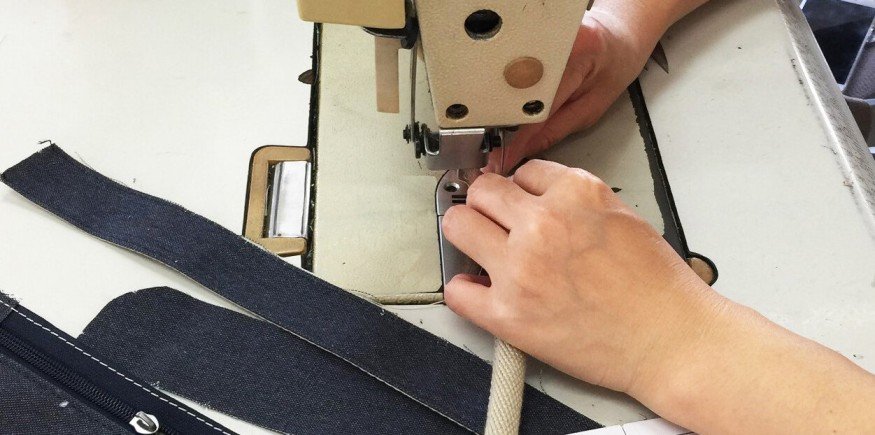
1. Introduction
In the bag manufacturing industry, ethical sourcing stands as a cornerstone not only for environmental stewardship but also for social responsibility. With the fashion sector being one of the largest contributors to environmental degradation—through waste, pollution, and excessive resource use—bags produced responsibly can significantly reduce this footprint. Moreover, by prioritizing ethical practices, manufacturers can ensure fair wages, and safe working conditions, and deter the exploitation of vulnerable populations. As consumers grow increasingly conscious of the origins of their purchases, the demand for ethically sourced bags is not just a moral imperative but also a competitive advantage in the market.
2. What is Sustainable and Ethical Sourcing?
Sustainable sourcing primarily focuses on environmental aspects. This involves acquiring materials and goods in a way that ensures the least possible negative impact on the environment. It emphasizes the use of renewable resources, reduction of carbon footprint, waste minimization, and the conservation of ecosystems. In essence, sustainable sourcing looks at the environmental repercussions of the materials and methods used in production and strives to minimize or negate those impacts.
Ethical sourcing, on the other hand, places its focus on the people involved in the production process. This means ensuring fair labor practices, just wages, safe working conditions, and the absence of exploitative practices such as child labor or forced labor. Ethical sourcing also entails respecting indigenous rights, ensuring gender equality in workplaces, and providing a voice to marginalized communities in the supply chain.
In many ways, sustainable and ethical sourcing are two sides of the same coin, both aiming to make global supply chains more responsible. By integrating these practices, businesses not only cater to the growing consumer demand for transparent and responsible sourcing but also ensure long-term sustainability and foster positive societal impacts.

3. Why It Matters: The Impact of Unethical Production
Unsustainable material production wreaks havoc on the environment, leading to deforestation, water and air pollution, and land degradation. These practices strip our planet of its essential resources, causing a domino effect of biodiversity loss, intensified climate change, and ecosystem imbalance. Additionally, the toxins released pose grave health risks for both wildlife and human populations. In a world grappling with environmental challenges, there’s an urgent call for industries to adopt sustainable methodologies and curb their detrimental impacts on our planet.
The fashion and accessory industries, especially within the fast fashion segment, have faced significant scrutiny for labor exploitation in their supply chains. Workers often endure abysmal conditions, receiving wages below the living standard, leading to a perpetual cycle of poverty. Coupled with excessively long working hours, lack of job security, and exposure to hazardous conditions, many are deprived of basic human rights. These practices not only trap individuals in exploitative systems but also perpetuate social inequalities on a global scale, with developed nations benefiting from the hardships faced by workers in low-income countries.
4. Materials Matter: Eco-friendly Options in Bag Production
- Recycled Fabrics: Bags crafted from recycled materials, such as PET bottles or discarded textiles, are gaining popularity. These fabrics divert waste from landfills, reduce the carbon footprint, and utilize existing resources instead of depleting new ones.
- Organic Cotton: A greener alternative to traditional cotton, organic cotton bags come without the environmental harm of synthetic pesticides and fertilizers. This material is biodegradable and offers a soft, natural aesthetic.
- Hemp: Hemp bags are durable, resistant to mold, and UV rays. As a crop, hemp requires little water and no pesticides, making it environmentally friendly from cultivation to product.
- Bamboo: While more commonly associated with hard items, bamboo can be processed into a soft, breathable fabric ideal for lightweight bags. Bamboo grows rapidly without pesticides, making it a sustainable choice.
- Tencel/Lyocell: Bags made from this material are soft, breathable, and have a smooth finish. Derived from sustainable wood sources, Tencel uses a closed-loop production process, minimizing environmental impact.
- Cork: Commonly used for vegan bags, cork is a renewable material harvested from the bark of cork oak trees. It’s lightweight, water-resistant, and has a unique texture. These sustainable materials, when utilized in bag production, not only cater to the eco-conscious consumer but also play a pivotal role in reducing the fashion industry’s environmental footprint, making style and sustainability two sides of the same coin.

Benefits and challenges of using each type
Recycled Fabrics:
- Benefits:
- Environmental conservation as resources are reused.
- Reduces landfill waste and consumption of new raw materials.
- Energy efficiency compared to producing new materials.
- Challenges:
- Quality may vary depending on the original materials.
- Limited availability depends on the waste sources.
- Requires thorough cleaning processes to ensure purity.
Organic Cotton:
- Benefits:
- Free from harmful chemicals, kinder to the skin.
- Biodegradable and reduces environmental impact.
- Requires less water than conventional cotton.
- Challenges:
- Typically more expensive due to lower yields and the organic certification process.
- Might lack the same durability as treated cotton.
- Requires more land to produce the same amount as conventional cotton.
Hemp:
- Benefits:
- Incredibly durable and long-lasting.
- Naturally resistant to mold and UV rays.
- Grows quickly without the need for pesticides or much water.
- Challenges:
- Can feel rougher compared to other fabrics.
- Limited variety in textures and finishes.
- Associations with cannabis can sometimes cause misconceptions.
Bamboo:
- Benefits:
- Rapidly renewable resource.
- Natural antibacterial properties.
- Soft and breathable fabric.
- Challenges:
- Chemical processing can negate some of its eco-friendly properties.
- Over-harvesting can threaten natural bamboo forests.
- Quality may vary among producers.
Tencel/Lyocell:
- Benefits:
- Biodegradable and produced in a closed-loop process.
- Soft, breathable, and hypoallergenic.
- Derived from sustainable wood sources.
- Challenges:
- More expensive production process compared to other fabrics.
- Can wrinkle easily, affecting aesthetics.
- Not as widely recognized or sought after by consumers.
Cork:
- Benefits:
- Natural, renewable, and biodegradable.
- Lightweight and water-resistant.
- Unique aesthetic appeal.
- Challenges:
- Can become brittle or discolored with prolonged exposure to sunlight.
- Limited flexibility compared to other materials.
- Production is geographically limited to areas where cork oak trees grow.

5. Partnerships and Collaborations: Working with Ethical Suppliers
How to identify and collaborate with suppliers committed to ethical practices
Identifying and collaborating with suppliers committed to ethical practices is crucial for businesses that value sustainability, social responsibility, and the long-term well-being of all stakeholders. Here’s a guide to help in this endeavor:
1. Research and Due Diligence:
- Investigate the Supplier’s Reputation: Check for any news articles, reviews, or reports related to the supplier. A consistent track record of positive feedback can be a good indicator.
- Examine Their Certifications: As discussed earlier, certifications like Fair Trade, GOTS, or OEKO-TEX can be indicators of ethical practices.
2. Direct Communication:
- Ask Specific Questions: When you engage with potential suppliers, ask about their sourcing, labor practices, environmental policies, etc. Their willingness to answer transparently can be a good sign.
- Visit the Production Facilities: If feasible, visiting the supplier’s facilities can provide direct insight into their operations and practices.
3. Review Their Code of Conduct:
- Ethical suppliers often have a clear Code of Conduct or Ethics Policy that they adhere to. Review this document to understand their values and operational guidelines.
4. Establish Clear Expectations:
- In your contracts or agreements, explicitly state your company’s expectations regarding ethical practices.
- This can include clauses related to fair wages, humane working conditions, and sustainable sourcing.
5. Engage in Collaborative Partnerships:
- Instead of a purely transactional relationship, aim to create partnerships where both parties are working towards enhancing ethical practices.
- Regularly review and assess practices, and work together to address any shortcomings or challenges.
6. Audit and Monitor:
- Conduct regular audits, either internally or through third-party organizations, to ensure compliance with ethical standards.
- Consistent monitoring ensures that standards are maintained over time.
7. Ensure Ethical Financial Practices:
- Pay suppliers promptly and fairly. Financial strain can sometimes push suppliers to cut corners, so ensure that your financial dealings with them are ethical too.
8. Stay Updated:
- The landscape of ethical sourcing and production is continually evolving. Stay updated with the latest best practices, regulations, and technologies to ensure that your collaborations remain in line with current standards.
Incorporating these steps into your supplier collaboration strategy can not only enhance your brand’s ethical reputation but also create a more sustainable and socially responsible supply chain. It’s a win-win for businesses, suppliers, workers, and the environment.

Questions to ask and red flags to watch out for
Questions to Ask:
- Source and Origin:
- Where do you source your materials or products?
- Can you provide details on the origin of these materials?
- Certifications and Compliance:
- What certifications do you hold related to ethical and sustainable practices?
- How do you ensure compliance with these certifications?
- Labor Practices:
- What measures are in place to ensure fair wages and safe working conditions?
- How do you ensure that there’s no child or forced labor in your supply chain?
- Environmental Impact:
- What practices or technologies do you employ to minimize your environmental footprint?
- How do you manage waste and emissions?
- Transparency and Traceability:
- Can you provide visibility into your supply chain and production processes?
- How do you track and verify the ethical practices of your own suppliers?
- Continuous Improvement:
- How do you address concerns or issues related to ethical practices?
- Do you have any recent examples of improvements or changes you’ve made in response to ethical concerns?
Red Flags to Watch Out For:
- Vague Responses:
- Suppliers who provide vague or generic answers, or frequently dodge questions, might have something to hide.
- Lack of Certifications:
- While not all ethical suppliers will have certifications, an absence (especially combined with other red flags) might indicate a lack of commitment to verified standards.
- Unwillingness to Allow Audits or Site Visits:
- If a supplier is resistant to external audits or doesn’t allow for facility visits, they may be hiding unethical practices.
- Overemphasis on Cost and Speed:
- Suppliers who prioritize being the cheapest or the fastest, especially at the expense of other factors, may be compromising on ethical standards to achieve those ends.
- High Turnover or Employee Dissatisfaction:
- If you hear about frequent staff turnovers or widespread employee grievances, it might indicate poor labor practices.
- Lack of Traceability:
- Suppliers who can’t provide details about where their materials come from or how they’re processed might lack transparency in their supply chain.
- History of Violations:
- If the supplier has a history of environmental, labor, or other related violations, it’s a clear red flag.
- Rapid Changes in Business Identity or Name:
- Constantly changing business names or identities can sometimes indicate an attempt to escape past grievances or negative reputations.
- Resistance to Long-Term Agreements:
- If a supplier is unwilling to commit to long-term contracts or agreements that enforce ethical standards, they might not be invested in sustained ethical practices.

6. Conclusion
In our rapidly evolving global market, the push for ethical practices and sustainability is no longer a mere trend but a necessary shift towards responsible consumerism and production. As we’ve explored throughout this blog, understanding the intricacies of ethical sourcing, particularly in the bag manufacturing industry, is more than about purchasing a product—it’s about investing in a vision for a better world. By asking the right questions, being aware of potential red flags, and choosing to collaborate with suppliers committed to ethical practices, businesses can play a pivotal role in driving positive change. As consumers, educators, or business leaders, we each hold the power to make decisions that shape our future. By prioritizing ethical considerations in our supply chains, we’re not just choosing bags; we’re choosing a path toward a more equitable, sustainable, and promising tomorrow for all.
At Airscape Textile, we take pride in being more than just a bag supplier. We are dedicated to ethical production, ensuring that every bag we offer is a testament to sustainable and responsible manufacturing. Our commitment to these principles goes beyond the product; it’s woven into the very fabric of our business ethos. If you’re in search of a trusted, ethically-conscious bag supplier, we’re here to meet your needs. Reach out to us by filling out the form on this page and let’s collaborate for a brighter, more sustainable future in fashion.


